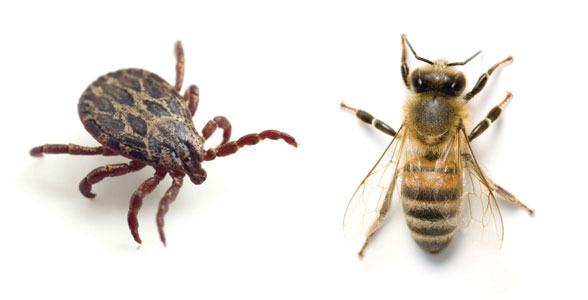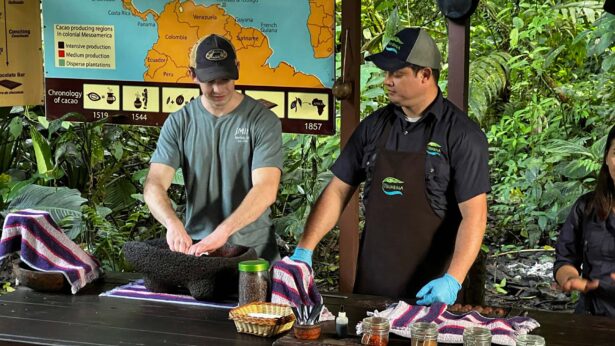There is no vaccine to prevent Lyme disease in humans, but researchers at UT Health Science Center are working on a vaccine that would reduce the exposure to humans. Maria Gomes-Solecki, assistant professor in the Department of Microbiology, Immunology, and Biochemistry, is leading the research to create an oral vaccine for animals. The research is funded through a multiyear grant from the U.S. Centers for Disease Control and Prevention worth more than $3.2 million. Deer ticks spread the bacterium that causes Lyme disease. The vaccine would immunize wildlife, such as squirrels and mice, and sterilize the ticks that feed on the animals.
UT Extension is busy tracking the health of honey bees as part of the Bee Informed Partnership funded by the U.S. Department of Agriculture. John Skinner, UT Extension professor of entomology, and Michael Wilson, an IT specialist and graduate student, are working on a web-based database for the partnership. The partnership’s goal is to find out why honey bee colonies are dying in the winter and prevent more losses. Without turning the trend around, the loss of honey bees would ultimately affect crops and the food we eat. For more information about the Bee Informed Partnership, go to http://beeinformed.org.



